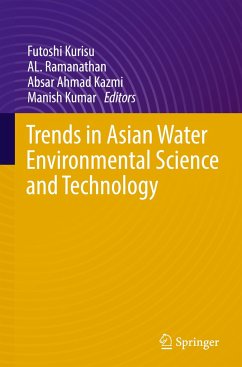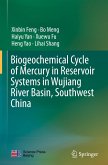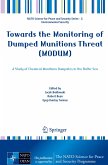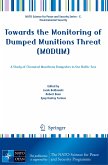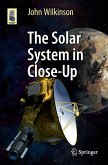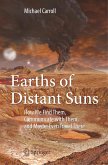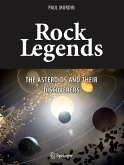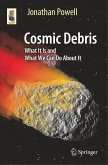Trends in Asian Water Environmental Science and Technology
Herausgegeben:Kurisu, Futoshi; Ramanathan, AL; Kazmi, Absar Ahmad; Kumar, Manish
Trends in Asian Water Environmental Science and Technology
Herausgegeben:Kurisu, Futoshi; Ramanathan, AL; Kazmi, Absar Ahmad; Kumar, Manish
- Gebundenes Buch
- Merkliste
- Auf die Merkliste
- Bewerten Bewerten
- Teilen
- Produkt teilen
- Produkterinnerung
- Produkterinnerung
This book brings together and integrates contributions on water quality modeling, monitoring and assessment techniques; wastewater treatment technologies; and sociological approaches in a single text. Divided into twenty chapters, it offers a comprehensive reference for students, professionals and researchers working on various aspects of water environment technology. The papers published in this book - selected from those presented at the 1st International Forum on Asian Water Environment Technology, held in 2013 in New Delhi, India - highlight the water environmental problems in Asia and…mehr
Andere Kunden interessierten sich auch für
![Biogeochemical Cycle of Mercury in Reservoir Systems in Wujiang River Basin, Southwest China Biogeochemical Cycle of Mercury in Reservoir Systems in Wujiang River Basin, Southwest China]() Xinbin FengBiogeochemical Cycle of Mercury in Reservoir Systems in Wujiang River Basin, Southwest China112,99 €
Xinbin FengBiogeochemical Cycle of Mercury in Reservoir Systems in Wujiang River Basin, Southwest China112,99 €![Towards the Monitoring of Dumped Munitions Threat (MODUM) Towards the Monitoring of Dumped Munitions Threat (MODUM)]() Towards the Monitoring of Dumped Munitions Threat (MODUM)75,99 €
Towards the Monitoring of Dumped Munitions Threat (MODUM)75,99 €![Towards the Monitoring of Dumped Munitions Threat (MODUM) Towards the Monitoring of Dumped Munitions Threat (MODUM)]() Towards the Monitoring of Dumped Munitions Threat (MODUM)75,99 €
Towards the Monitoring of Dumped Munitions Threat (MODUM)75,99 €![The Solar System in Close-Up The Solar System in Close-Up]() John WilkinsonThe Solar System in Close-Up30,99 €
John WilkinsonThe Solar System in Close-Up30,99 €![Earths of Distant Suns Earths of Distant Suns]() Michael CarrollEarths of Distant Suns21,99 €
Michael CarrollEarths of Distant Suns21,99 €![Rock Legends Rock Legends]() Paul MurdinRock Legends29,99 €
Paul MurdinRock Legends29,99 €![Cosmic Debris Cosmic Debris]() Jonathan PowellCosmic Debris25,99 €
Jonathan PowellCosmic Debris25,99 €-
-
-
This book brings together and integrates contributions on water quality modeling, monitoring and assessment techniques; wastewater treatment technologies; and sociological approaches in a single text. Divided into twenty chapters, it offers a comprehensive reference for students, professionals and researchers working on various aspects of water environment technology.
The papers published in this book - selected from those presented at the 1st International Forum on Asian Water Environment Technology, held in 2013 in New Delhi, India - highlight the water environmental problems in Asia and respective countermeasures. This book addresses water quality requirements, emphasizing the factors that affect the water environment. Treated wastewater asa new source of water is also examined, introducing readers to important aspects of water reuse. Selecting the most effective and proper wastewater treatment approach is actually the most essential part of generating a new water resource, as well as protecting the receiving water environments. Thus, the fundamental principles of wastewater treatment and monitoring are a major focus in this book, which is intended to help readers effectively address various water environmental problems in Asian countries.
The papers published in this book - selected from those presented at the 1st International Forum on Asian Water Environment Technology, held in 2013 in New Delhi, India - highlight the water environmental problems in Asia and respective countermeasures. This book addresses water quality requirements, emphasizing the factors that affect the water environment. Treated wastewater asa new source of water is also examined, introducing readers to important aspects of water reuse. Selecting the most effective and proper wastewater treatment approach is actually the most essential part of generating a new water resource, as well as protecting the receiving water environments. Thus, the fundamental principles of wastewater treatment and monitoring are a major focus in this book, which is intended to help readers effectively address various water environmental problems in Asian countries.
Produktdetails
- Produktdetails
- Verlag: Capital Publishing Company / Springer / Springer International Publishing / Springer, Berlin
- Artikelnr. des Verlages: 978-3-319-39257-8
- 1st ed. 2017
- Seitenzahl: 264
- Erscheinungstermin: 13. Oktober 2016
- Englisch
- Abmessung: 241mm x 160mm x 19mm
- Gewicht: 586g
- ISBN-13: 9783319392578
- ISBN-10: 3319392573
- Artikelnr.: 44838284
- Herstellerkennzeichnung Die Herstellerinformationen sind derzeit nicht verfügbar.
- Verlag: Capital Publishing Company / Springer / Springer International Publishing / Springer, Berlin
- Artikelnr. des Verlages: 978-3-319-39257-8
- 1st ed. 2017
- Seitenzahl: 264
- Erscheinungstermin: 13. Oktober 2016
- Englisch
- Abmessung: 241mm x 160mm x 19mm
- Gewicht: 586g
- ISBN-13: 9783319392578
- ISBN-10: 3319392573
- Artikelnr.: 44838284
- Herstellerkennzeichnung Die Herstellerinformationen sind derzeit nicht verfügbar.
Dr. Futoshi Kurisu is an associate professor at the Research Center for Water Environment Technology (RECWET), University of Tokyo. He received the excellent paper award for young scientists from the Japan Society of Civil Engineering in 2001. He has also won the Takeda Techno-Entrepreneurship Award and Kurita Excellent Research Award for Water and Environmental Studies, in 2002 and 2010, respectively. He has published more than 70 papers in peer-reviewed journals, and is a member of the Japan Society on Water Environment, Japan Society of Microbial Ecology, Japan Society of Civil Engineering, Japan Society of Environmental Biotechnology, Japan Society of Water Treatment Biology, International Water Association, and the International Society of Microbial Ecology. His current research interests are microbial enhancement of soil/groundwater bioremediation, microbial analysis of biological water/wastewater treatment processes, and water quality evaluation of water resources for reuse. Prof. AL. Ramanathan, Ph.D. in sedimentary geochemistry, is currently a Professor at the School of Environmental Sciences, Jawaharlal Nehru University, New Delhi, India. He is engaged in various aspects of coastal research, including nutrient dynamics, paleo environments, source identification etc., with a number of universities and research organizations in India, Australia, Russia, the USA, etc. He has supervised several Ph.D.'s in the areas above and published more than 60 papers in respected peer-reviewed journals. He has also published 5 books and several book chapters. He received three IFS Sweden (Project) Awards to work on Mangrove biogeochemistry, in addition to working on national and international Indo-Australian, Indo-Russian, DST, MoEF, and MoWR projects. He was a post-doctoral fellow in the STA Japan program, UGC-Russian Academy of Science program, CSIR, INSA, DST, etc. He is Chief Editor of the Journal of Climate Change, a member of the editorial board for the Indian Journal of Marine Sciences, and has served as a referee for many national and international journals. Dr. Absar Ahmad Kazmi is a Professor of Environmental Engineering at the Department of Civil Engineering, IIT Roorkee. He received his Doctor of Engineering from the University of Tokyo in 1999. After working as a Project Engineer at Nishihara Environment Technology, Tokyo (1999-2004), he is now actively involved in teaching, research, consultancy and continuing education programs at the IIT Roorkee. He has received many awards and published more than 150 papers in peer-reviewed journals, in addition to book chapters and conference papers. He is a member and chairman of several committees of National and State Governments; most notables are the Ministry of Urban Development committee on the preparation of Design and O&M manuals on Sewage Treatment, the Ministry of Environment & Forests Research Advisory Committee, and the National Green Tribunal. He has chaired several conferences, engaged in several sponsored research projects and was involved in consultancy projects for various companies and organizations. Dr. Manish Kumar holds a Ph.D. in Environmental Engineering from the University of Tokyo, and is a faculty member at Tezpur Central University, Assam, India. He has four book publications to his credit, as well as numerous (>50) further publications in the course of his 12 years experience in hydrology and water management and working experience at prestigious institutes like the University of Tokyo, Japan; Kunsan National University, S. Korea; Uppsala University, Sweden; and Jawaharlal Nehru University (JNU), Delhi. He received a Research Grant Award from Kurita Water Environment Foundation (KWEF), Japan (ID P: 14009), a Major Research Project Grant from the University Grant Commission (UGC), India (2012-2015), a Uranium Research Grant from Bhabha Atomic Research Centre (BARC), Mumbai (2015), a Water Advanced Research and Innovation (WARI) Fellowship, USA (2016-2017), two best poster awards as co-author of the paper, the Best Research Award 2013 at the 4th Asia Pacific Water Young Professional (APWYP) conference in Tokyo, the International Water Association (IWA) initiative, DST young scientist award (2012-2015), JSPS Foreign Researcher Fellowship (2010-2012), COE Young Researcher Fund (2007), and a Linnaeus-Palme stipend from SIDA, Sweden (2005). He serves on the editorial boards of the Journal of Groundwater for Sustainable Development (Elsevier Journal) and the International Journal of Earth Sciences and Engineering.
Part 1: Wastewater Treatment and Monitoring.- 1. RSM and ANN-GA Experimental Design Optimization for Electrocoagulation Removal of Chromium.- 2. Sunlight-assisted Photo-Fenton Process for Removal of Insecticide from Agricultural Wastewater.- 3. Catalytic Reduction of Water Contaminant '4-Nitrophenol' over Manganese Oxide Supported Ni Nanoparticles.- 4. Simulation of Nitrate Removal in a Batch Flow Electrocoagulation-flotation (ECF) Process by Response Surface Method (RSM).- 5. Decolourization Studies of a Novel Textile Dye Degrading Bacterium.- 6. Preliminary Study of Rapid Enhanced Effective Micro-organisms (REEM) in Oil and Grease Trap from Canteen Wastewater.- 7. Step-feed Technology in SBR to Enhance the Treatment of Landfill Leachate.- 8. Response Surface Optimization of Phosphate Removal from Aqueous Solution Using a Natural Adsorbent.- 9. Removal of Pharmaceuticals from Water Using Adsorption.- Part 2: Hydrological and Quality Issues.- 10. Hydrological Regimes and Zooplankton Ecology at Tempe Floodplains, Indonesia: Preliminary Study before the Operation of the Downstream Barrage.- 11. Organics and Heavy Metals Content in River Receiving the Effluent of Municipal Landfill Leachate Treatment.- 12. Tracing the Significance of River for Arsenic Enrichment and Mobilization.- 13. Evaluation of Groundwater Quality in 14 Districts in Sri Lanka: A Collaboration Research between Sri Lanka and Japan.- 14. Arsenic Contamination in Groundwater Affecting Holocene Aquifers of India: A Review.- 15. Water Quality Evaluation in a Rural Stretch of Tezpur, Assam (India) Using Water Quality Index and Correlation Matrix.- 16. Meltwater Quality and Quantity Assessment in the Himalayan Glaciers.- 17. Delineation of Point Sources of Recharge in Karst Settings.- 18. Identify the Major Reasons to Cause Vulnerability to Mekong Delta under the Impacts of Drought and Climate Change.- 19. Multi-pathway Risk Assessment of Trihalomethanes Exposure in Drinking Water Supplies.- 20.The Study of Water Losses Using Knowledge Based System Approach.- Index.
Part 1: Wastewater Treatment and Monitoring.- 1. RSM and ANN-GA Experimental Design Optimization for Electrocoagulation Removal of Chromium.- 2. Sunlight-assisted Photo-Fenton Process for Removal of Insecticide from Agricultural Wastewater.- 3. Catalytic Reduction of Water Contaminant '4-Nitrophenol' over Manganese Oxide Supported Ni Nanoparticles.- 4. Simulation of Nitrate Removal in a Batch Flow Electrocoagulation-flotation (ECF) Process by Response Surface Method (RSM).- 5. Decolourization Studies of a Novel Textile Dye Degrading Bacterium.- 6. Preliminary Study of Rapid Enhanced Effective Micro-organisms (REEM) in Oil and Grease Trap from Canteen Wastewater.- 7. Step-feed Technology in SBR to Enhance the Treatment of Landfill Leachate.- 8. Response Surface Optimization of Phosphate Removal from Aqueous Solution Using a Natural Adsorbent.- 9. Removal of Pharmaceuticals from Water Using Adsorption.- Part 2: Hydrological and Quality Issues.- 10. Hydrological Regimes and Zooplankton Ecology at Tempe Floodplains, Indonesia: Preliminary Study before the Operation of the Downstream Barrage.- 11. Organics and Heavy Metals Content in River Receiving the Effluent of Municipal Landfill Leachate Treatment.- 12. Tracing the Significance of River for Arsenic Enrichment and Mobilization.- 13. Evaluation of Groundwater Quality in 14 Districts in Sri Lanka: A Collaboration Research between Sri Lanka and Japan.- 14. Arsenic Contamination in Groundwater Affecting Holocene Aquifers of India: A Review.- 15. Water Quality Evaluation in a Rural Stretch of Tezpur, Assam (India) Using Water Quality Index and Correlation Matrix.- 16. Meltwater Quality and Quantity Assessment in the Himalayan Glaciers.- 17. Delineation of Point Sources of Recharge in Karst Settings.- 18. Identify the Major Reasons to Cause Vulnerability to Mekong Delta under the Impacts of Drought and Climate Change.- 19. Multi-pathway Risk Assessment of Trihalomethanes Exposure in Drinking Water Supplies.- 20.The Study of Water Losses Using Knowledge Based System Approach.- Index.

